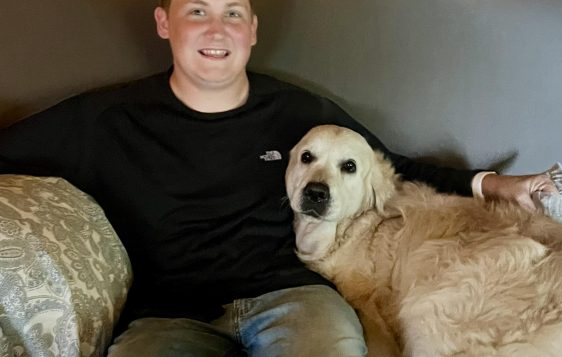Blog

My nephew Christopher has been staying with us for a few weeks. He’s a recent high school graduate with his whole life still ahead of him. He’s exploring career possibilities for his future, but along the way, he’s also learning responsibility.
We raise dogs and have been teaching him how to take care of them. There is a lot of work involved, and it’s important to follow all the instructions we give him.
Feed them this amount. Each one gets this vitamin. Make sure the clip goes back on each kennel. Check the doors when you’re done. If you drop any pieces of food on the floor, make sure it’s picked up. Seal the food container tightly. Tell Citana to go out before you begin feeding. Spray off this way. Pick up the hose. Fill the water this way. Put the hose back in the fence. Turn it off this way.
And the list continues.
He’s done a pretty good job, but the first couple of days, I went behind him to make sure he had done everything correctly. It’s not that we are controlling dictators and have to have things done our way exactly, but as I explained to him, there is a reason for everything we do.
When we take care of the dogs, it goes a whole lot faster. We’re used to it. We know the routine. And, we know there are more efficient ways to do the things we do. For example, we instructed him to make sure every clip was in place before moving on to the next. But for us, the dogs know us. And we know them. We know which ones we can trust to stay put if their clip isn’t put back on right then. And we also know that Genesee is the best escape artist. She’s smart as a whip. If you leave that clip off, immediately, she pushes the handle up with her nose, pushes the door open and she’s free as a bird.
But as we’re training Chris, it’s better if we just tell him to put every clip back on every time before he moves on.
And if he’s with us while we are taking care of the dogs, we make sure we are doing the same.
1 Corinthians 8:7-13
“But not everyone possesses this knowledge. Some people are still so accustomed to idols that when they eat sacrificial food they think of it as having been sacrificed to a god, and since their conscience is weak, it is defiled.
8 But food does not bring us near to God; we are no worse if we do not eat, and no better if we do.
9 Be careful, however, that the exercise of your rights does not become a stumbling block to the weak.
10 For if someone with a weak conscience sees you, with all your knowledge, eating in an idol’s temple, won’t that person be emboldened to eat what is sacrificed to idols?
11 So this weak brother or sister, for whom Christ died, is destroyed by your knowledge.
12 When you sin against them in this way and wound their weak conscience, you sin against Christ.
13 Therefore, if what I eat causes my brother or sister to fall into sin, I will never eat meat again, so that I will not cause them to fall.”
Let’s talk about Christian freedom and Christian responsibility. They are directly tied to one another. While we may have freedom in Christ because of grace, our responsibility to disciple and strengthen new believers is more important than exercising our freedoms.
This is what Paul was trying to share with the more mature believers at Corinth. Yes, God’s grace is what saves us. But it’s not an “anything goes” life. It means our salvation was bought and paid for by the sacrifice of Christ, not by our good works, legalism, or rules that we follow. However, it is important for believers to remember that new Christians are learning. Not just from Scripture, but from our example as well.
The context Paul is writing about is eating food sacrificed to idols. Many of these believers were Gentiles who had been converted. They were once pagan worshippers. They knew about the idols that those people were offering sacrifices to. Then that meat was sold on the market and if you purchased your meat there, you might very well be eating meat sacrificed to idols. Some new believers were so worried about that, that they abstained from eating meat altogether.
Paul urged the believers who ate the meat regardless of where it came from to be careful not to offend the “weaker” or newer believers. He said, if it is offensive to them, he would not eat it because his responsibility to them was more important than his freedoms in Christ.
I’m sure there are a million things we could talk about here as examples. The point is, we should be living our lives honorably for the mission of Christ. Are we doing that?
If you want to know more about what it means to follow Jesus, go to follow.lifeword.org and in Spanish, follow.lifeword.org/spanish.
Copyright © 2025 Lifeword.org. All rights reserved. No part of this article may be reproduced or reprinted without permission in writing from Lifeword.org

